


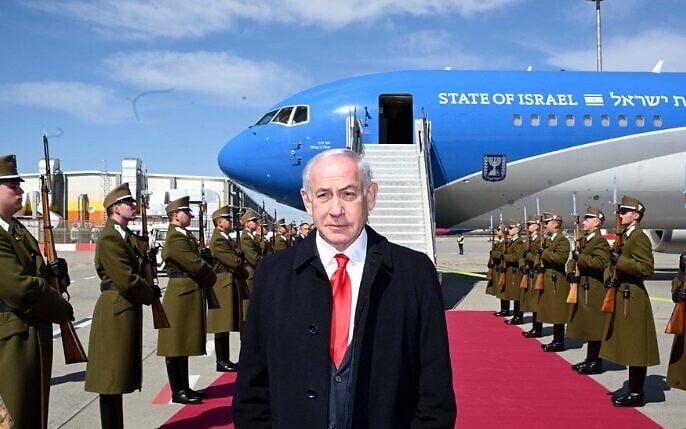
At long last, after years of speculation, threats, and even being called a chickenshit by a senior Obama administration official, Prime Minister Benjamin Netanyahu finally pulled the trigger.
In the wee hours of the morning on Friday, waves of Israeli jets roared across the deserts to the east, dropping munitions on Iran’s key nuclear sites, ballistic missile stores, and its senior military command.
The operation utilized capabilities out of an action thriller — setting up a drone base inside Iran, smuggling in advanced weapons systems on trucks, and deploying teams of Mossad commandos.
It was bold, innovative, and — thus far — highly effective at all levels.
The operation reflects how Netanyahu sees himself, but not at all how much of Israel and the world had viewed him in recent months.
Netanyahu says Britain’s World War II prime minister, Winston Churchill, whose bust keeps a watchful eye over his office, is his role model for rallying the liberal West to fight against a brutal enemy that threatened Jews and all civilization. For Churchill, it was Nazi Germany; for Netanyahu, it’s the Islamic Republic of Iran.
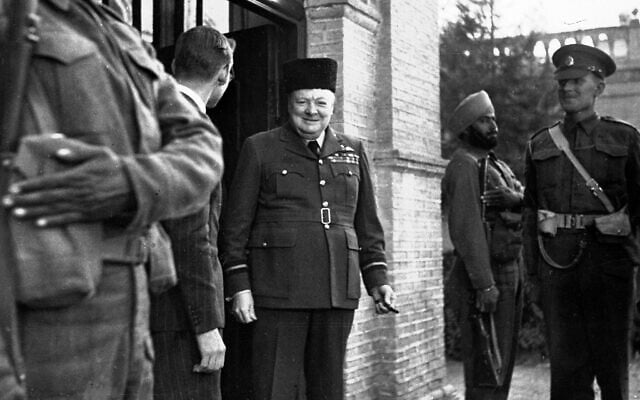
“I would like to be remembered as the protector of Israel,” he told Fareed Zakaria in 2016. “That’s enough for me, protector of Israel.”
It had seemed a few months ago that Netanyahu was well situated to accomplish his two driving goals — ending the Iranian nuclear threat and signing a normalization deal with Saudi Arabia. He was US President Donald Trump’s first guest in Washington in February. There was nary a word of criticism of Israel from Trump or anyone in his administration — a welcome change from the Joe Biden era, during which senior officials rarely said a positive word without throwing in not-so-veiled threats or critiques.
But that changed suddenly in April, when Trump summoned Netanyahu to the White House a second time, directly from Hungary.
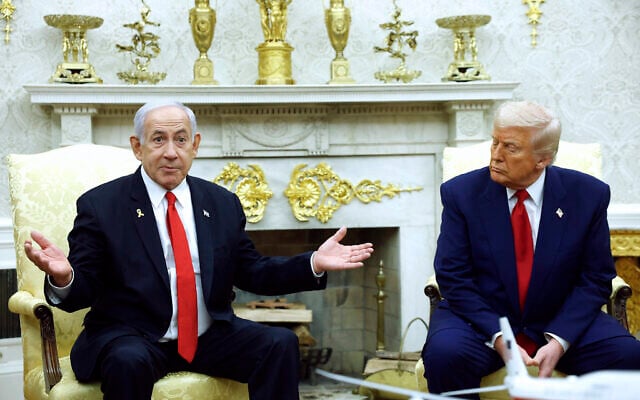
The meeting went terribly for Netanyahu, with Trump announcing direct talks with Iran. And after that, the decisions coming out of 1600 Pennsylvania Avenue and Mar-A-Lago only created more headaches for him.
US hostage envoy Adam Boehler conducted secret direct talks with Hamas. Steve Witkoff, Trump’s Middle East envoy, engaged in several rounds of nuclear talks with Iran, reportedly on a deal that is largely a rehash of the 2015 Joint Comprehensive Plan of Action that was strongly opposed by Netanyahu and that Trump scrapped during his first term.
Meanwhile, Trump moved his national security adviser, Mike Waltz, a staunch Iran hawk, out of the White House, reportedly angered that he was coordinating with Netanyahu on military options to destroy Tehran’s nuclear program.
And the president was said to be fed up with Netanyahu’s delays on decisions that were affecting his ability to move forward on his vision for the Middle East.
Furthermore, early in May, two days after a Houthi missile hit Ben Gurion Airport, and without coordinating with Israel or other allies, Trump announced that he had reached a ceasefire agreement with the Houthis, one that did not stop the Iran-backed group from continuing to fire on Israel, leaving Jerusalem suddenly alone in the fight against a persistent and hard-to-reach enemy.

Trump’s subsequent first Middle East trip didn’t include a stop in Israel. Instead, he and Saudi Crown Prince Mohammed bin Salman signed a massive arms deal that, until recently, had been seen as conditioned on Riyadh establishing diplomatic relations with Israel.
Trump also met Syria’s President Ahmed al-Sharaa and lifted sanctions on the country, in direct opposition to a request Netanyahu made at the White House. Trump praised the former jihadist leader, calling him a “young, attractive guy. Tough guy. Strong past. Very strong past. Fighter.”
Trump was moving ahead without Israel, it seemed, and Netanyahu had botched his chance to achieve the very things he said he was in office to accomplish.
Or, some speculated, he never really meant to do them in the first place. They were just cheap political props to keep himself in power and out of jail.
Then, on Friday, the planes took off.
Opponents will continue to criticize Netanyahu, but few will doubt that there is plenty of steel in the man after this decision.
Perhaps it should have been anticipated.
“I think I know Bibi fairly well,” said Michael Oren, former ambassador to Washington under Netanyahu. “He was born for this moment.”
The strategic circumstances also created the ideal window for the operation. Hezbollah, the army Iran built as its deterrent against Israel to protect its nuclear program, is a spent force for the foreseeable future following its disastrous 2023-2024 war with Israel.
In a once-unthinkable announcement, it stated Friday that it wouldn’t get involved in the fight, showing Tehran that it could not be relied on in the moment of truth.
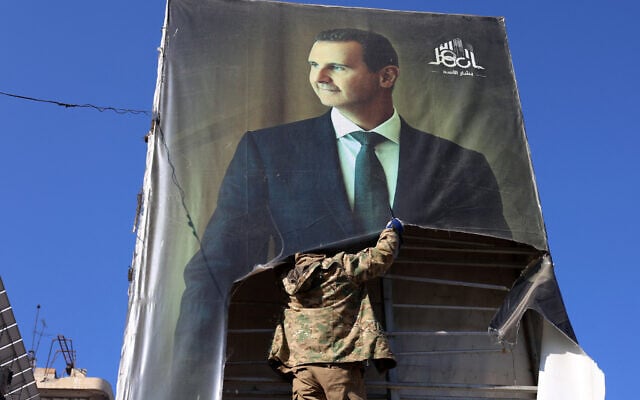
Syria’s Bashar Al-Assad is gone, too, as is his military infrastructure following extensive Israeli strikes, leaving the skies over Syria clear for Israeli pilots.
And Israel took out key anti-aircraft batteries in Iran last year, in response to Iran’s ballistic missile and drone attacks in April and October, opening the way for exactly this type of operation until it replenishes its capabilities.
The transformation in Israel’s strategic posture also pointed toward this outcome.
After decades of a defensive deterrence and containment strategy, which failed spectacularly on October 7, Israel finally shifted to a strategic offensive against the Iranian alliance. It went on the attack against Hezbollah, Hamas, the Houthis, and now, Iran.
“The Iron Swords War does not stand on its own,” wrote Israeli military theorist Eran Ortal in 2024. “The campaign in Gaza is a critical transition stage, both conceptual and practical, during which Israel is moving from defense to offense in a long war with Iran’s proxies.”
John Hannah, senior fellow at the Jewish Institute for National Security of America (JINSA) and former national security adviser to US vice president Dick Cheney, said after Israel’s strike on Iran last year: “The doctrines of preemption and prevention are now back with a vengeance as part of Israel’s national security doctrine. They won’t be going anywhere soon.”
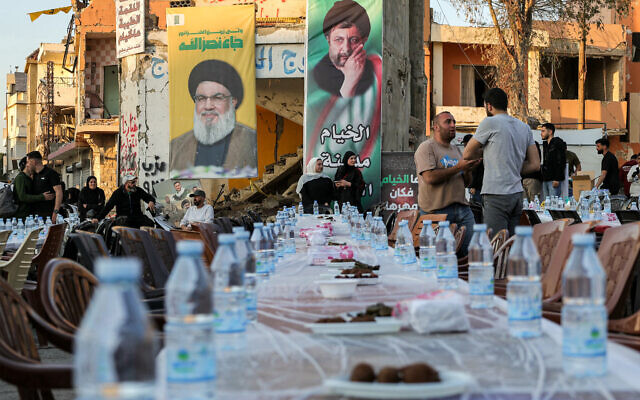
This was the logical destination, but many doubted Netanyahu had what it took to go the last mile.
One more realization might have prompted Netanyahu to take the leap: For all of Trump’s bluster and unpredictability, he has not shown a willingness to back up many of his threats. The Saudis understood this after he didn’t attack Iran in the wake of the 2019 Aramco attacks, and decided to open new diplomatic channels with Tehran. Russia and Iran seemed spectacularly unfazed by Trump, and have stuck to their positions in negotiations.
Perhaps Netanyahu, like Iran’s Supreme Leader Ali Khamenei, concluded that Trump wasn’t going to attack, and therefore decided that Israel had to do it on its own.
History has seen seminal events that have ushered in a new Middle East — the fall of the Ottoman Empire in World War I, the 1967 Six Day War, the September 11, 2001, attacks.
Hamas’s October 7, 2023, invasion of Israel is sure to be remembered as one such watershed. It was the high-water mark for the Iranian axis, which Israel has since rolled back, sometimes slowly, sometimes dramatically.
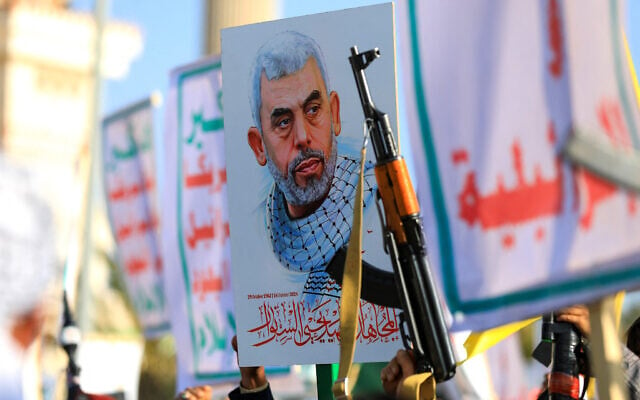
The Arab world is sure to take notice. Not only did Israel show a willingness to bleed in a long, grinding ground war against Hamas, international condemnation be damned, but it has been taking apart the Iranian axis that no Arab country had the will or ability to attack.
While world powers — the US, Russia, China, UK, Germany, France — debated and waved resolutions around, it was Israel that took action. And, it seems, extremely effective action at that.
The big question on the minds of the leaders of those countries, and the minds of Israelis now making sure their shelters are open and ready, is what will Iran do now?
Trump can play a decisive role here.
“The more successful Israel is, the less likely a regional war,” said Michael Makovsky, CEO of JINSA. “But perhaps most important is the US: The more Washington makes clear that it won’t tolerate Iran retaliating hard against Israel, or attacking other allies or US forces in the region, highlighting that the regime’s viability will be threatened, the less likely a regional war.”
“But the more the US stays on the sidelines, the more likely Iran will escalate.”
There will be more violence and surprises to come. But what is plain is that Israel, Iran, and the Middle East have entered a new era, one that might be extremely favorable to Israel and threatening to the Islamic Republic.
Or, as Churchill said, “This is not the end. It is not even the beginning of the end. But it is, perhaps, the end of the beginning.”
